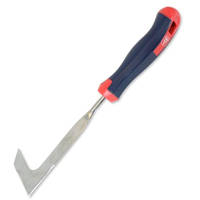Experts warn against this viral weeding hack — don’t try this at home
It could cause more harm than good
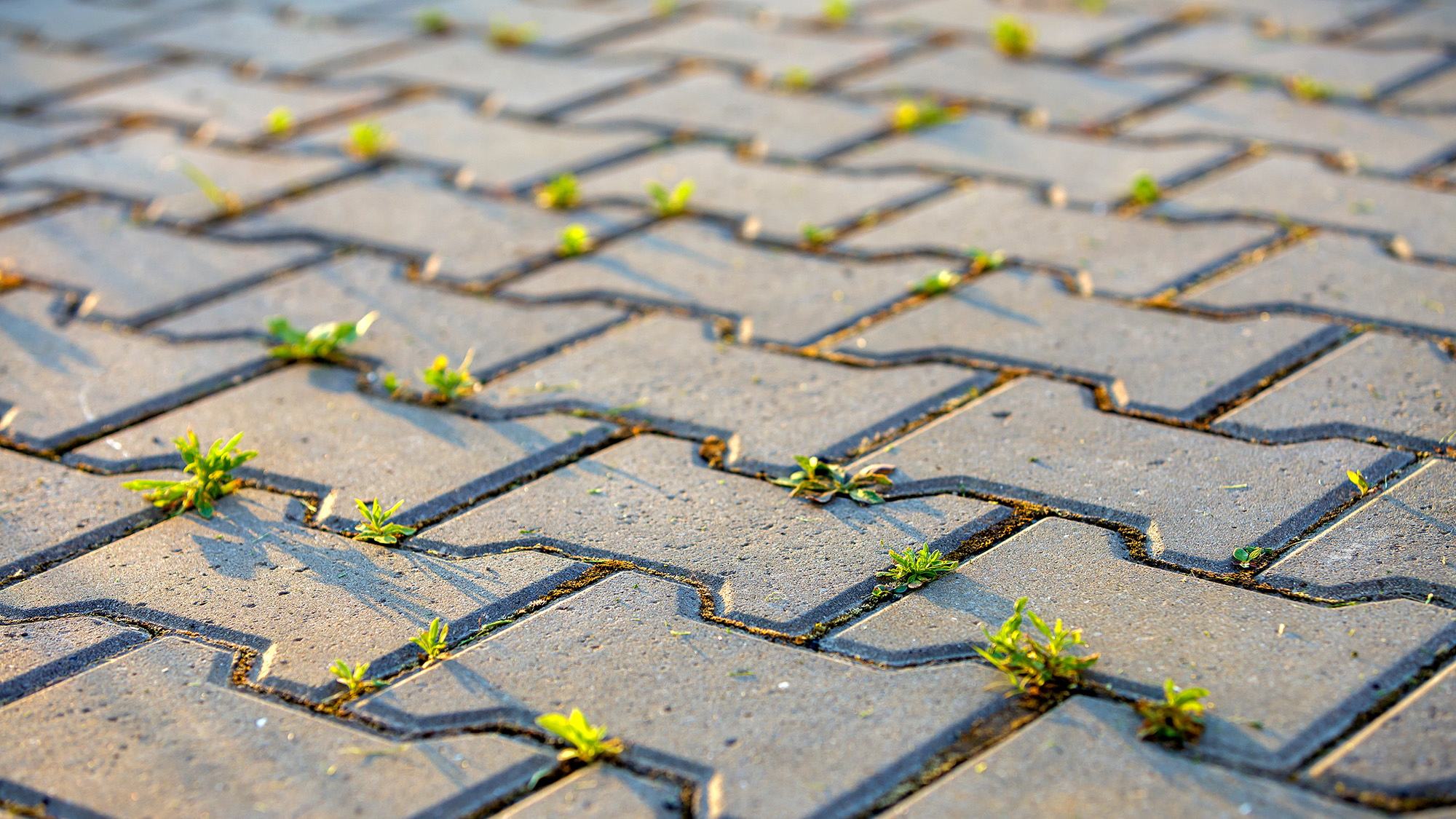
Having been cozy inside for a month or two, I’m more than ready to wrap up and step outside to brace the fresh air in my yard. Although many of my plants are still dormant, there are still plenty of jobs to do outside in February.
I’ll be grabbing my gardening gloves and pruning shears to tackle the plants that can be pruned in February. And I’ll also be choosing vegetable seeds to sow, so I can look forward to a spring harvest.
However, while most of my yard is still sleeping and not quite ready to wake up, I can spot some pesky weeds that have reared their ugly heads. Apart from wheedling their way through my soil, they’re also decorating my paving areas, and it’s not a pretty sight. While I don’t mind a weed or two in my flower beds, I prefer to see them banished from any patio or other paving areas.
But before I get started with ousting the weeds, experts are warning against a weeding hack that’s gone viral. And while I tend to reserve salt and vinegar for my fries, you could be making a big mistake using this combo to kill your weeds.
Take care before seasoning your weeds with salt and vinegar
Trevor Knight, award-winning expert landscaper at Marshalls, says to proceed with caution if you intend to follow the weeding tips as suggested on Mrs. Hinch’s Facebook page. The tip is also suggested by other cleaning and DIY gurus on TikTok, including Azure MacCannel @livecomposed, who received over 306K views when posting the salt and vinegar weeding trick.
@livecomposed
Although this weeding hack uses household products that we assume to be safe, and it also saves buying an off-the-shelf spray, it could cause more harm than good. Not only will it kill your weeds, but it could damage your paving.
Condiment culprits
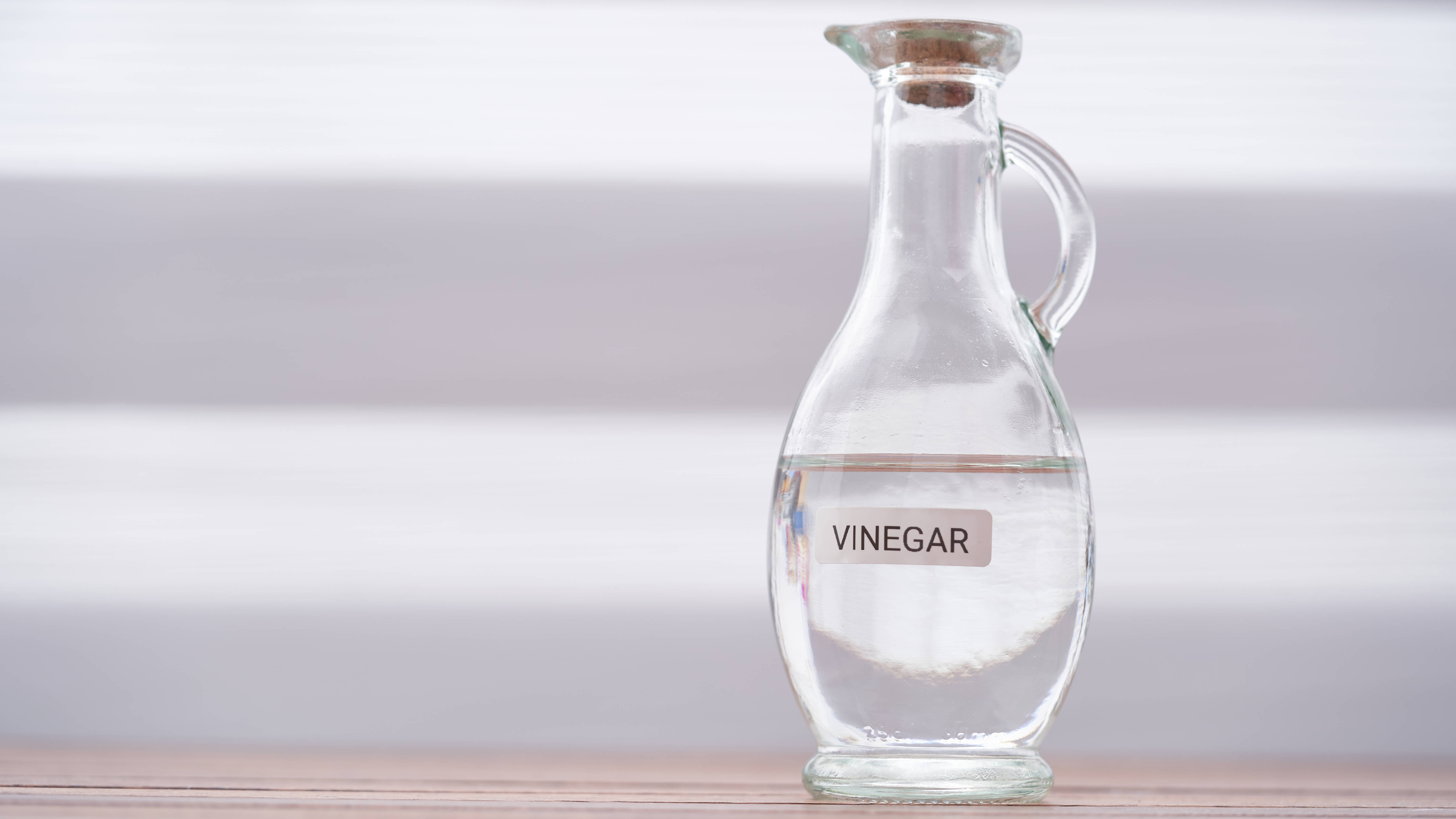
“On the surface, these hacks look great and are a quick fix to get rid of pesky weeds,” says Knight. “However, using salt and vinegar normally reserved for your fish and chip supper or a sneaky bag of your favorite crispy snack could be detrimental to the quality of many of the primary materials used to manufacture driveway and patio products.”

Salt
But what is it about salt and vinegar that causes an issue? Knight explains, “When it comes in contact with paving products, salt or sodium chloride can accelerate the breakdown, especially if the product has a porous mix design. Salt gets into cracks, and when it absorbs moisture, the material expands and contracts, leading to cracking and degradation over time.”
Sign up to get the BEST of Tom's Guide direct to your inbox.
Get instant access to breaking news, the hottest reviews, great deals and helpful tips.
So, unless you live in a particularly dry area, excessive moisture is inevitable. Salt also contributes to the rapid erosion of metal, with Knight explaining why this can lead to problems with driveways, especially if you have rebar reinforcing bars below the surface. “This will speed up rust formation if the salts come into direct contact,” he says.
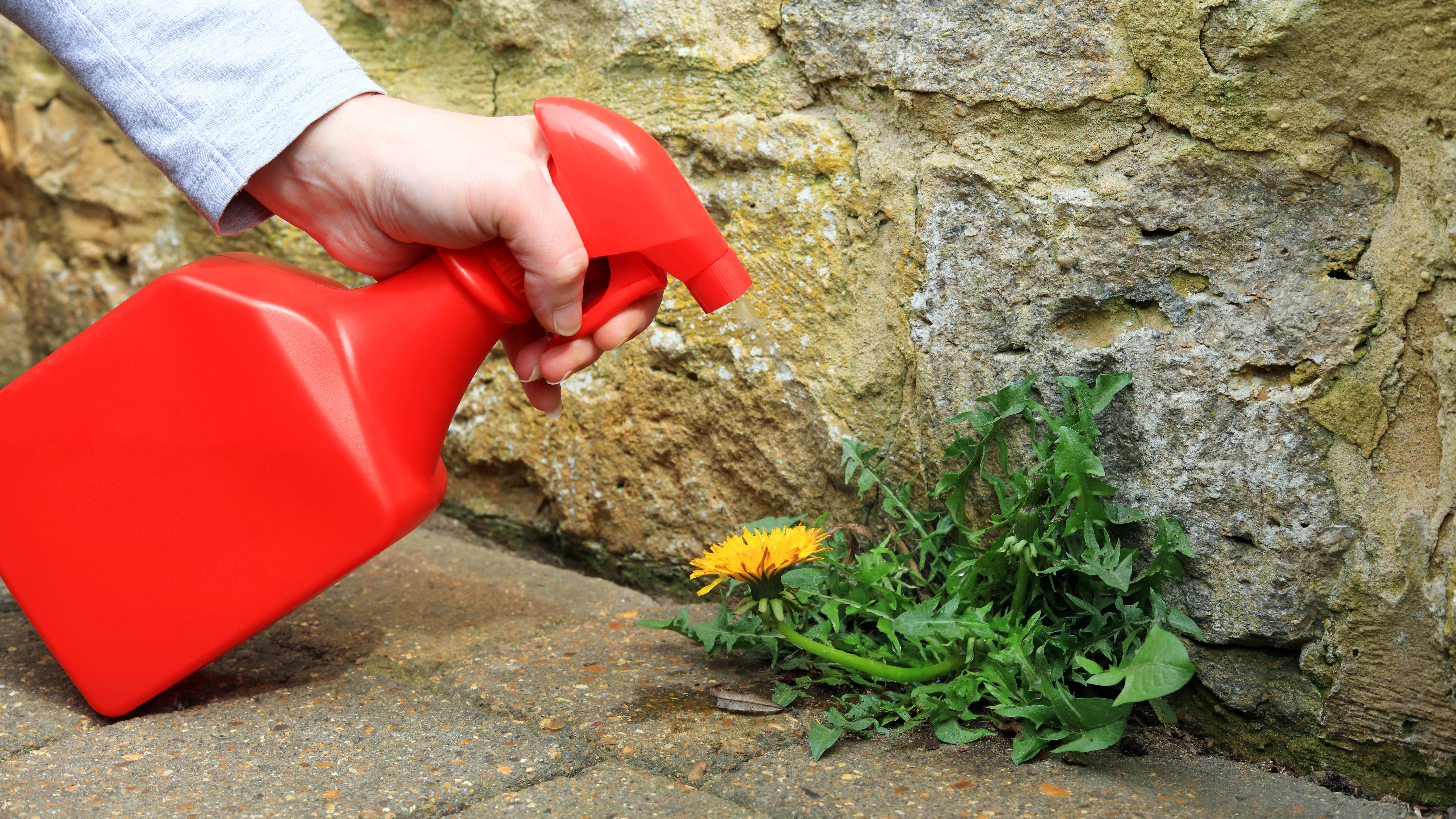
Vinegar
Apart from salt causing issues, vinegar is another condiment culprit. “Vinegar is acidic, and many paving products, especially limestone, sandstone, or concrete, are susceptible to erosion when exposed to acidic compounds,” says Knight. “The acid can dissolve the minerals in the stone, weakening its structure and causing it to break down, leading to surface damage over time.”
Over the long term, he explains that it can cause discoloration on some natural stone products and leave marks that are difficult to remove. Another issue is that vinegar can cause etching on some paving material, which appears as full spots or large visible stained patches.
Act with caution
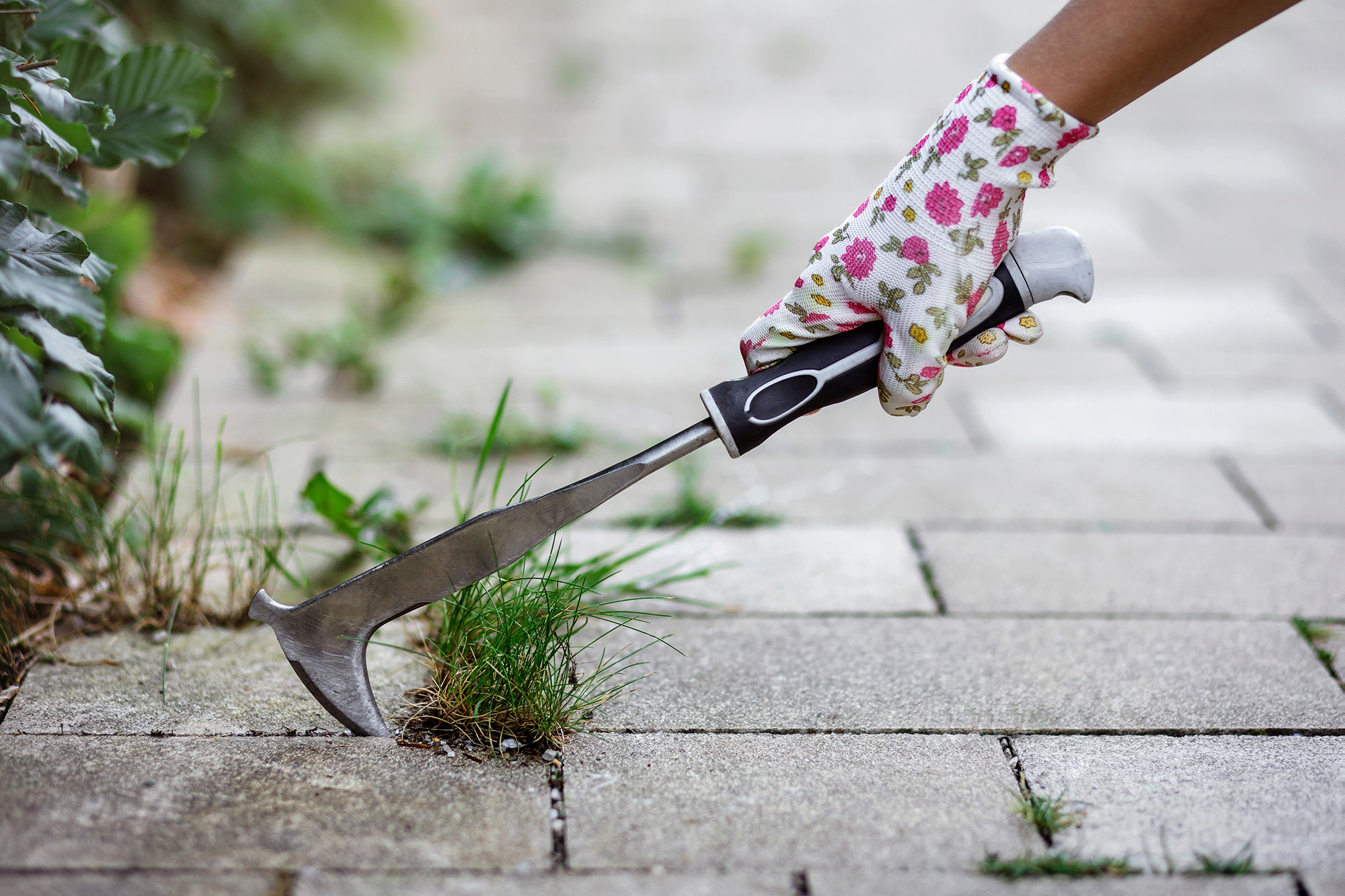
To avoid damaging your paving, Knight advises using the salt and vinegar method carefully, saying, “Direct the spray straight at the weeds and avoid the paved areas altogether.”
However, he adds that there are many better and cheaper options to try, suggesting the boiling water method as a natural and safe alternative, as well as manual weeding or vinegar directly straight at the weeds. If you decide to remove the weeds by hand you could try my favorite weeding tool for a bargain $20 that will make the process much quicker.
This stainless steel knife allows you to slice or scrape through unwanted weeds found between patio slab crevices. It is also ideal to remove moss and thatch from small spaces, like rockeries. It has a soft ergonomic handle for a comfortable grip and the stainless steel head is rust resistant.
Alternative ways to prevent weeds
It’s also possible to reduce the amount of weeding by putting in place preventative measures to stop weeds invading your yard. Knight says you can use “corn gluten meal, a natural organic weed killer or polymeric sand to make it harder for the weeds to take hold and prevent them from returning.
“Just avoid chemical solutions that could be detrimental to the paving and any sensitive border plants.”
More from Tom's Guide

Camilla Sharman has worked in publishing and marketing for over 30 years and has covered a wide range of sectors within the business and consumer industries both as a feature, content, and freelance writer.
As a business journalist, Camilla has researched articles for many different sectors from the jewellery industry to finance and tech, charities, and the arts. Whatever she’s covered, she enjoys delving deep and learning the ins and out of different topics, then conveying her research within engaging content that informs the reader. In her spare time, when she’s not in her kitchen experimenting with a new recipe, you’ll find her keeping fit at the gym. In the pool, stretching at a yoga class, or on a spin bike, exercise is her escape time. She also loves the great outdoors and if she’s not pottering about in her garden, she’ll be jumping on her bike for a gentle cycle ride.
-
Azure MacCannell Oh please! Do you think this “expert” realizes that here in New England we salt our driveways and walkways daily in the winter without issue? Or that the PH of most power wash fluid recommended to clean these surfaces is very low and often contains ingredients like citric acid or oxalic acid? But hey, good luck generating affiliate rev from your overpriced butter knife by scaring ppl with this expert opinion 🙄Reply
